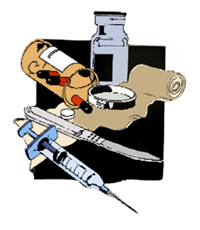Diabetes drugs control blood sugar with fewer negatives
The once-a-day medications are the first in a new class of Type 2 diabetes drugs that work in a unique way, and competitors Merck & Co. and Novartis AG both hope to win Food and Drug Administration approval to begin selling them by year's end.

Still, specialists anxiously await the new options, which work with a one-two punch: They increase levels of a hormone that triggers the pancreas to produce more insulin to process blood sugar while simultaneously signaling the liver to quit making that glucose. The pills do that by blocking production of an enzyme, called DPP-4, that normally inactivates that hormone.
The positive effects of the drugs, coupled with fewer of the negatives seen in other diabetes treatments, is what sets them apart, said Dr. John Buse, vice president of the ADA.
In Type 2 diabetes, patients either do not produce enough insulin or cells in the body ignore it. Insulin is needed to process sugar; without it, blood sugar levels soar.
American Diabetes Association guidelines suggest diabetics cut their levels of an averaged measure of blood sugar levels, called A1c, to less than 7 percent. Many, if not most, diabetics exceed that threshold. Helping them drop below it could reduce their risk of serious complications, like kidney failure and amputations, the ADA says.
Merck said its pill, Januvia or sitagliptin, lowered blood sugar levels by 0.67 percent in a yearlong trial, or just as much as another, older drug, glipizide. Roughly two-thirds of patients reached the ADA's 7 percent goal, the AP reports.
Subscribe to Pravda.Ru Telegram channel, Facebook, RSS!





